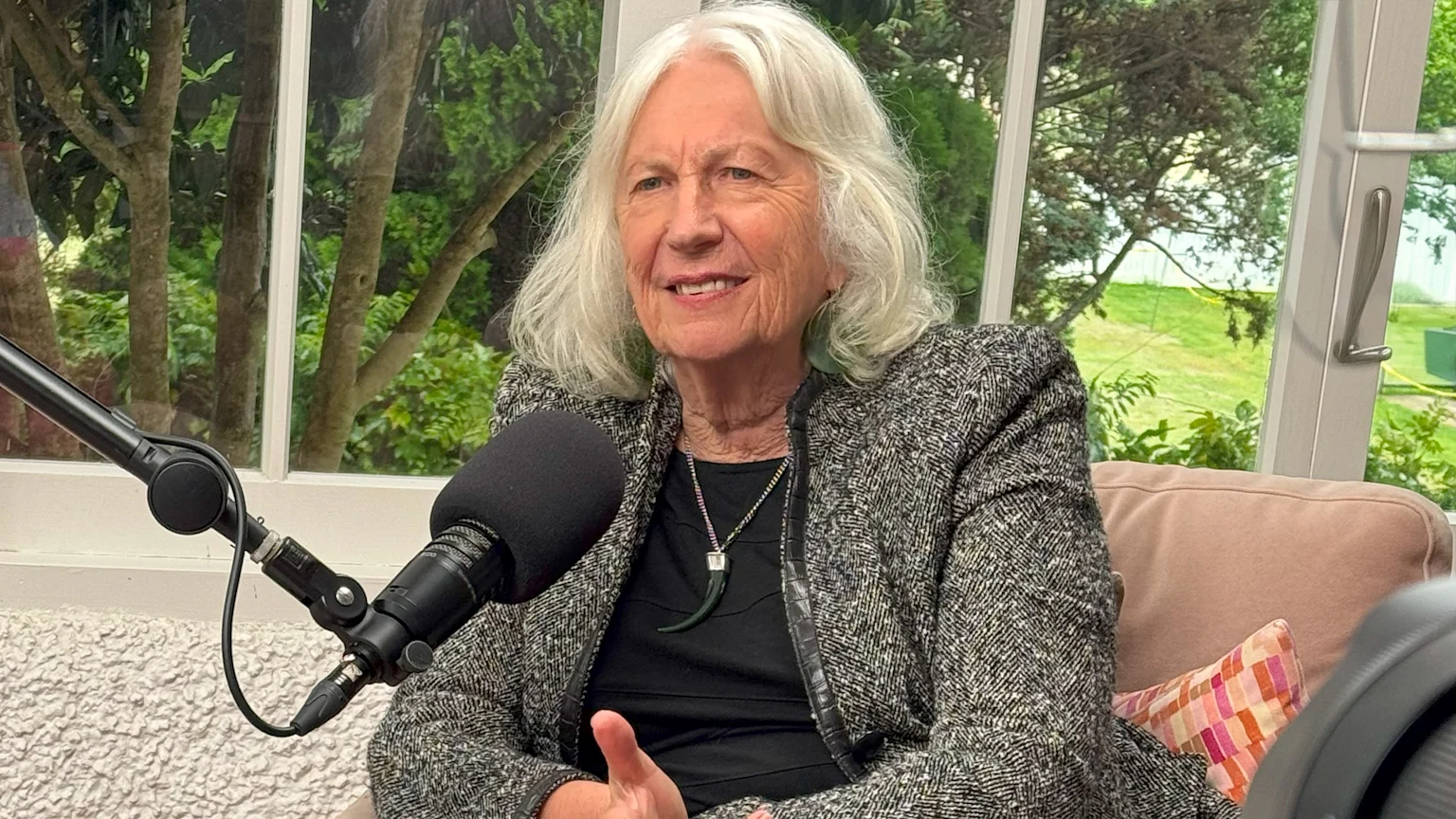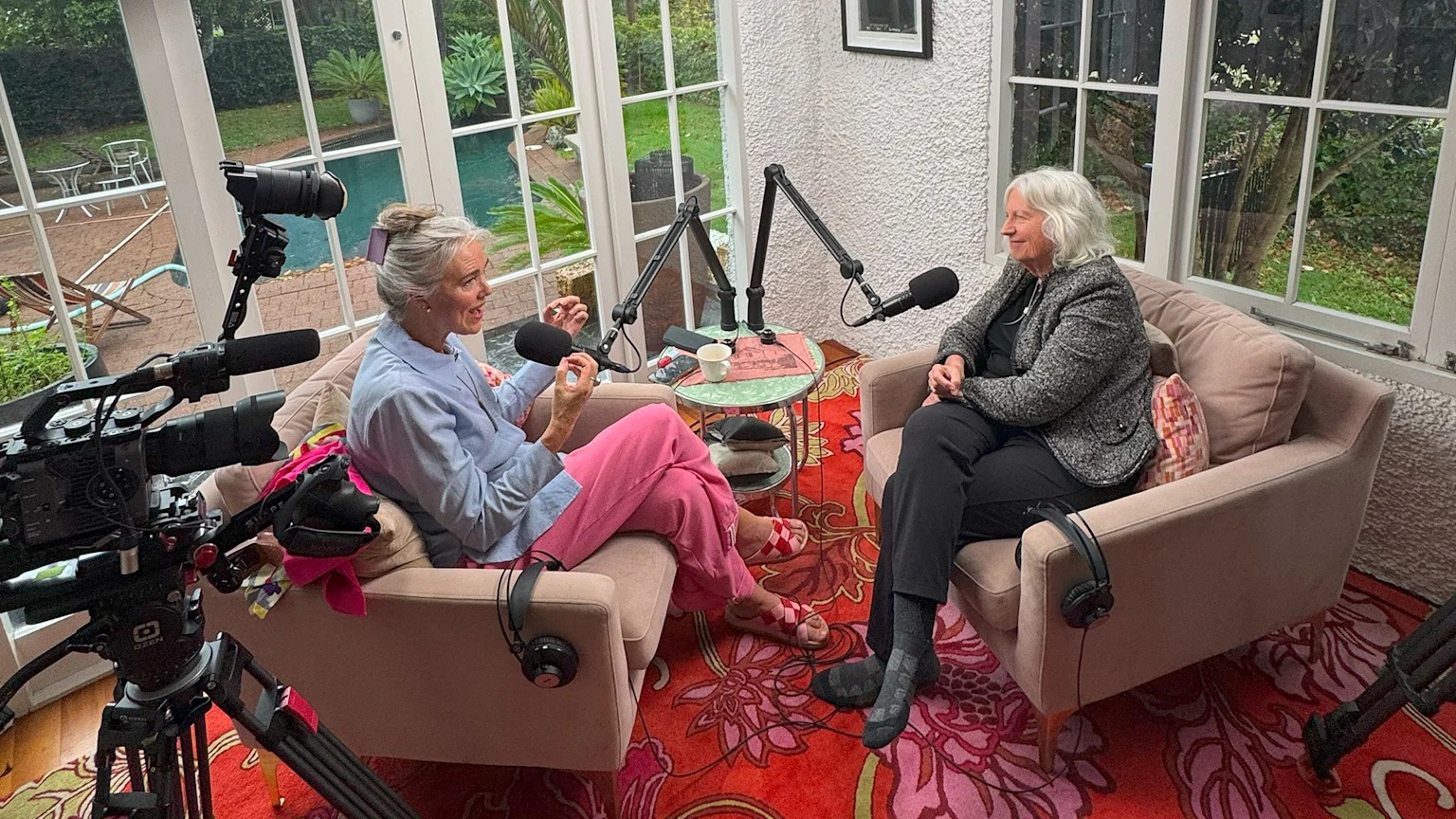New Zealand
Grey Areas: Dame Anne Salmond on why it’s time to ditch ‘Iwi v Kiwi’ thinking

Published by Matt Burrows and Malorie Carey
30 Apr 2025
One of New Zealand’s most respected academics is urging us to stop sorting people into rigid Māori and Pākehā identities, saying it’s not the intention of Te Tiriti o Waitangi and is harming children’s mental health.
Dame Anne Salmond is a former NZer of The Year (2013), a historian and anthropologist who has spent decades studying early encounters between Māori and Europeans, cross-cultural interactions, and New Zealand history.
On the the latest episode 'Grey Areas', she told host Petra Bagust the debate around the Treaty often boils down to "iwi vs Kiwi" binaries - when that was never how treaty signatories saw it.
“[If] I'm a good Treaty partner, that means I've gotta do X, Y, and Z – but I don't think about it like that at all,” she said.
“Part of the problem is that people have interpreted that to say we have to replicate all our institutions, so we'll have two parliaments, two legal systems, two of everything.
“I don't think that's what the Treaty was talking about at all. It was [about] empowering the hapū and the rangatira in relation to their territory, their whenua, their kāinga, their mountain, their river – within their world.”
Dame Anne told Petra the true intention of the Treaty – for different hapū to join an alliance with Queen Victoria, each with their own independent mana guaranteed by the Crown – is “a lot easier to live with than a split country” as has been put forward in the form of co-governance.
“A country that's divided down the middle and you say there's that box and it's a Māori box, and it can have all its own things – if you're a kid and you've got whakapapa that takes you in all these directions, what are you going to do?” she asked.
“ I think it's actually affected the mental health of a lot of kids, because they're asking them to choose between their parents, like, ‘I'll go with my mum, but I'll forget about my dad because he's Pākehā’ sort of thing.
“Or ‘my dad represents that horrible colonial history’, and you're forcing people to make some of those kinds of choices sometimes. And even when you're married, it can be like that.”
In part one of the podcast, which came out last week, Dame Anne spoke about how the life-changing gift of learning te reo Māori had been essential in reframing how she sees the world.
“ In anthropology, we call it ontology – the assumptions you make about the world that are so deep you don't even know you're making them,” she said.
“If you learn a language which makes really different assumptions about how the world works … and you start thinking like that, I'm sure you just get kind of rewired to some extent. Not totally, of course, but, but significantly.”
Petra also described her own journey with the language.
“I started a te reo Māori journey and recognise that it has re-enlivened the way I see the world – it has allowed me to fall in love with life again … you realise that what you thought were eyeballs are lenses, and that there are oceans and worlds of ways of engaging and thinking and understanding and learning.”
Dame Anne explained how a large part of this rewiring can be attributed to seeing the world through a relational lens, in which the world is an all-encompassing set of whakapapa networks.
“It's not like learning French or German, it's different – and I think it's a huge gift because it's relational logic. It’s there in the syntax, but it's even deeper than that in the semantics of the language.”
This relational logic can reshape and challenge patterns of thinking that are based on binary oppositions, Dame Anne said.
“People that are thinking in terms of binary logic – ‘Iwi v Kiwi’, ‘nature v culture’, ‘mind v matter’ – you end up [thinking that] the person that thinks differently becomes an enemy”.

“In the States at the moment, it’s the Democrats and the Republicans. You can’t navigate that space because you've erected these walls between you through this binary logic.
“The nature of that logic is to sort things into different boxes and to make a clean cut – it’s X is not equal to Y. Whereas in relational logic, it's X gets together with Y and creates Z. That's whakapapa for you – relationships are creative, they're not an impassable wall.”
For Dame Anne, the potential pitfalls of binary logic can be exemplified in our approach to carbon emissions.
“ We've put it in a silo and we said, ‘okay, what sucks up the most carbon? Pine trees, so let's do that’… And you cover the country with pine trees, and you forget that maybe deep-rooted ancient forests that have cohabited with these landscapes for 80 million years and have co-evolved with them, might actually do a better job.
“If we have something a bit like covid for pine trees – and it's happening with climate change – then they're all wiped out. Whereas if you've got a natural forest, you've got a million species in there, and some will be okay … when you think in terms of whakapapa, you immediately think like that.”
Dame Anne says the strength of diversity when it comes to the environment can be replicated in our relationships with each other.
“[We can have] conversations where you can be different and you can still have mana, each of you, you know, you don't have to knock the other person over."
Listen to both parts of the conversation with Dame Anne Salmond on Grey Areas here and here.
Published by Matt Burrows and Malorie Carey
30 Apr 2025